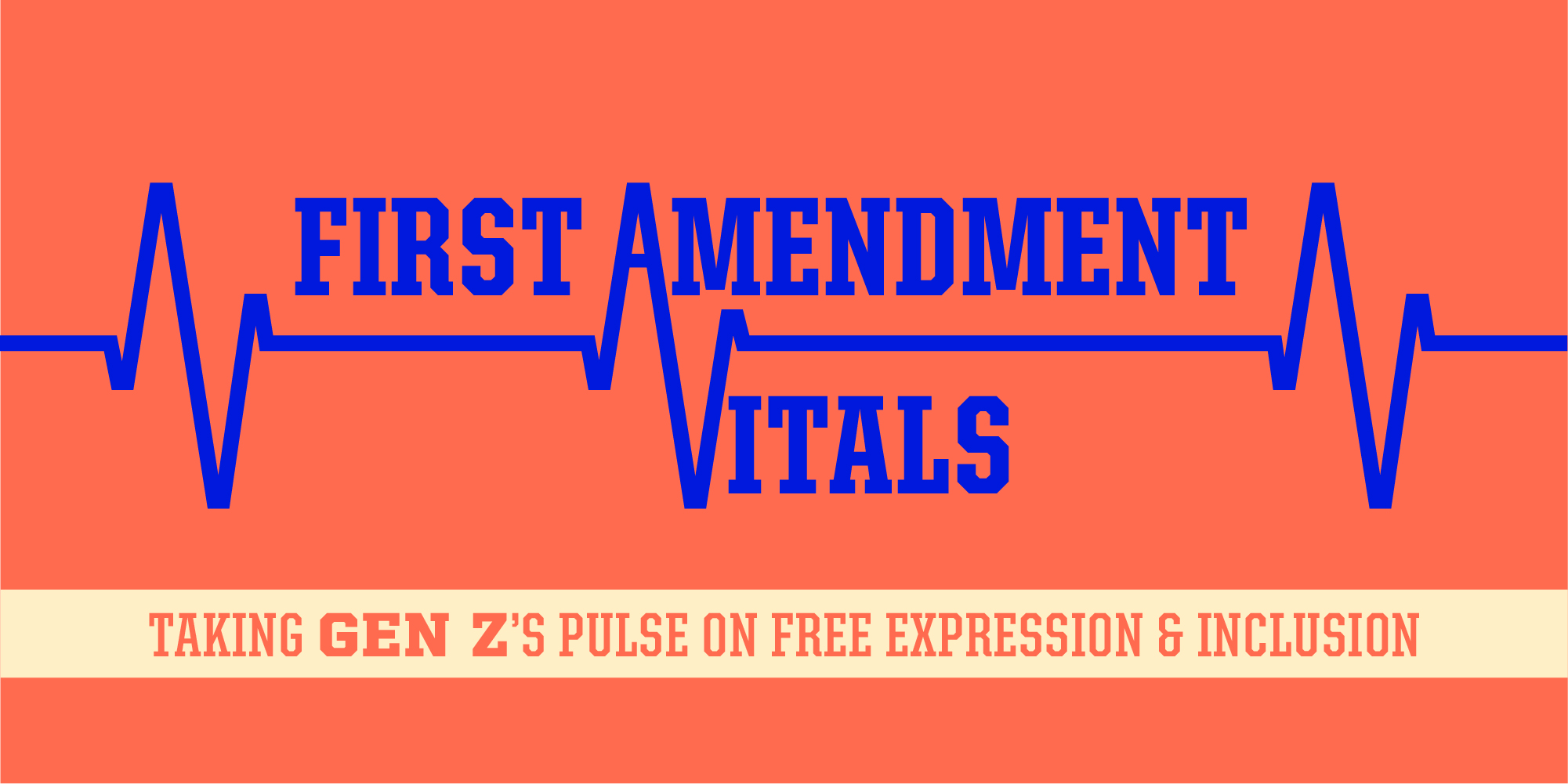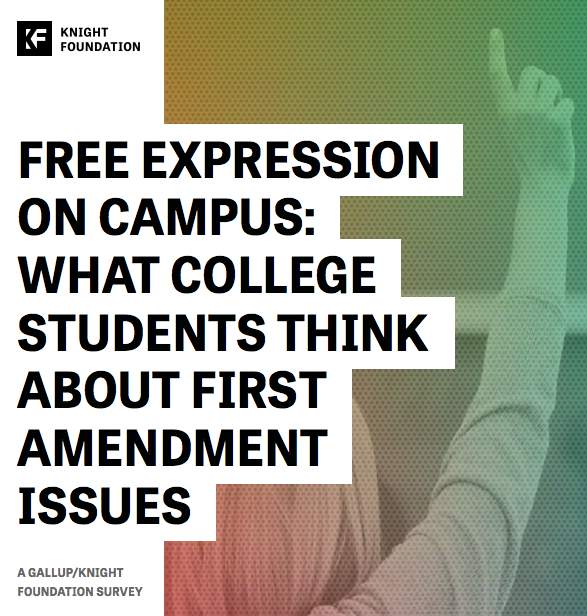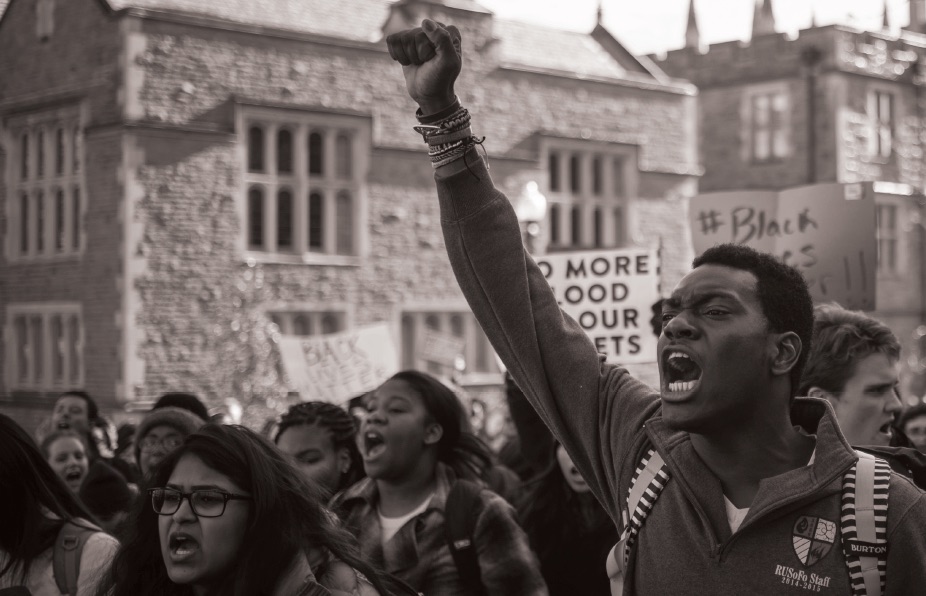
First Amendment vitals: Taking Gen Z’s pulse on free expression and inclusion
On May 13, 2019, Knight Foundation released the report, “Free Expression on College Campuses.” Download the full report here, and see the press release here.
College campuses have recently undergone a pivotal generational shift. Millennials have left the nest of higher education and entered the workforce. Undergraduates on campus now hail from the tip of the next age cohort known as Generation Z. They are the true digital natives born into an always-on world. The very oldest was four on 9/11, seven when Facebook launched, 10 when the iPhone came on the scene and 19 – freshly eligible to vote – in the 2016 election.
To better understand this generation’s emerging views on issues of freedom of expression and diversity inclusion, Knight commissioned mobile-first polling platform College Pulse to undertake a national studyof more than 4,000 of these full-time, four-year degree seeking students. This research joins our longstanding efforts to study and understand the future of the First Amendment, and builds on previous college student surveys in collaboration with Gallup released in 2016 and 2018 respectively.
Originally developed by college students, College Pulse leverages Gen Z’s omnipresent smartphone by fielding surveys via a confidential mobile app rather than traditional telephone interviews. This digital survey and analytics platform provided an opportunity to meet young people where they are, includes novel incentives through “gamification,” and may also elicit more honest answers by removing the pressure to give more socially acceptable responses in the presence of an interviewer.
Here are some of Knight’s key takeaways:
A majority of students do not support free speech restrictions, but 41 percent draw the line at hate speech: College Pulse asked college students if hate speech – defined as speech that “attacks people based on their race, religion, gender identity or sexual orientation,” – should continue to be protected under the First Amendment as repeatedly upheld by the U.S. Supreme Court. Nearly six in 10 (58 percent) of students said that hate speech ought to be protected while 41 percent disagree.

Women and men are not aligned on prioritizing free speech vs inclusivity: A substantial majority of college men (71 percent) say protecting free speech is more important than fostering an inclusive society. On the other hand, over half (58 percent) of college women say inclusivity should take precedence.

Historically underrepresented groups are less enthusiastic about unrestricted free speech: Most college men (74 percent) support hate speech protection under the First Amendment compared to less than half (46 percent) of college women.Fewer than half of black students (48 percent), women (46 percent), Jewish students (45 percent), gay and lesbian students (35 percent) and gender non-binary students (29 percent) say hate speech should be protected under the First Amendment. Gender was actually a stronger determinant than race with regards to hate speech protection.

Protesting speakers on campus is widely accepted, but not by violent means: While a vast majority of students say it is sometimes or always acceptable to protest speakers invited to campus, 83 percent say it is never acceptable to employ violence to stop a speech or rally from taking place.

Students agree that the political and social climate on campus hinders them from expressing their opinions openly and honestly – particularly Republicans:
More than two-thirds (68 percent) of college students say the campus climate prevents them from expressing their true opinions for fear of offending their classmates. While college men feel this most acutely, the sentiment is shared across genders and ethnicities. This is especially true for Republican students (83 percent agree, including 43 percent who “strongly agree”) versus those affiliating with the Democratic party (62 percent agree and only 13 percent “strongly agree”).

Final thoughts, complexities and questions
As a fresh and increasingly college-bound generation enters adulthood, they will refine and test their emerging societal and political values in the petri dish of the college experience. They may find themselves in close proximity – perhaps for the first time – with people that look and think quite differently than their communities of origin.
These findings speak to complex issues currently in discussion on American campuses. Students on the wrong side of popular campus opinion are hesitant to openly share their views. While there is broad support for free speech, historically underrepresented groups (women, racial, ethnic and religious minorities, LGBTQ) have deeper concerns around behaviors that affect inclusive environments, such as hate speech, than do white men.
Today, an unprecedented 48 percent of Generation Z belongs to a racial or ethnic minority group – a striking reminder that the American demographic profile is changing, as is the mosaic of backgrounds, experiences and opinions on campus.
This is complex terrain for educators, communities and society at large as we wrestle through the implications for free speech and open discourse. Some see core values of our democracy — equality and free expression — pitted against each other; others see the need to create spaces for equal free expression that make room for all voices.
A Note on the Methodology
Students were invited and incentivized to participate in this December 2018 survey from College Pulse’s panel of verified college students, resulting in a weighted random sample of 4,407 full-time students currently enrolled in a four-year program across 200 campuses in 50 states (see full report for detailed methodology).
Download the full report here.
Evette Alexander is a director of learning and impact at Knight Foundation. You can follow them on Twitter at @evettewashere.
-
-
Journalism / Press Release
-
Information and Society / Report
-
Information and Society / Report
-
Information and Society / Report
Recent Content
-
Information and Societyarticle ·
-
Artsarticle ·
-
Information and Societyarticle ·






